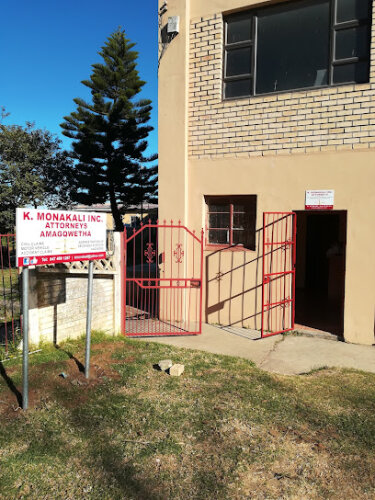Best Child Visitation Lawyers in South Africa
Share your needs with us, get contacted by law firms.
Free. Takes 2 min.
Free Guide to Hiring a Family Lawyer
Or refine your search by selecting a city:
List of the best lawyers in South Africa
South Africa Child Visitation Legal Questions answered by Lawyers
Browse our 1 legal question about Child Visitation in South Africa and read the lawyer answers, or ask your own questions for free.
- Can I have at least some time with my child?
- My girlfriend and I ended things up having an argument and her family got into our issue and told me I had paid anything for my child and they started fighting me and telling me I don't have a child there. When we tried to contact them and tell them... Read more →
-
Lawyer answer by RP Attorneys
If you are the biological parent of a child (but not limited to only a biological parent), the Children’s Act makes provision for child visitation and rights to care for a child. Maintenance and visitation are completely separate in SA....
Read full answer
About Child Visitation Law in South Africa
Child visitation laws in South Africa are designed to address and regulate the rights of non-custodial parents or guardians to visit their children. These laws ensure that the child's best interests are always prioritized while maintaining a fair relationship between both parents. The legal framework is primarily governed by the Children's Act (Act No. 38 of 2005), which emphasizes the responsibilities and rights of parents and aims to protect children's right to maintain regular contact with both parents. Visitation arrangements can be settled through mutual agreements, mediation, or court orders.
Why You May Need a Lawyer
Individuals may consider seeking legal advice on child visitation for a variety of reasons:
- Establishing Visitation Rights: When separating or divorced parents need to set up an agreeable visitation schedule.
- Enforcing Visitation Agreements: When one parent fails to adhere to approved visitation terms, legal intervention may become necessary.
- Modifying Visitation Arrangements: Changes in circumstances, such as relocating or a child’s changing needs, might require altering existing visitation plans.
- Disputes and Conflict Resolution: If parents cannot agree on visitation matters, legal representation can provide negotiation and mediation services.
- Protecting Child Welfare: If there are concerns over a child's safety during visitations, legal actions could be necessary to ensure their protection.
Local Laws Overview
In South Africa, several key aspects of local laws that impact child visitation include:
- Children's Act: The central piece of legislation that outlines parental responsibilities, including visitation rights and the child's best interests principle.
- Parental Responsibilities and Rights: Determined by either the biological nature or through adoption, guardianship, or court orders. Both parents typically have the right to partake in their child's life.
- Best Interests of the Child: All legal decisions must respect this principle as the primary guideline in any visitation or custody case.
- Mediation: Before court proceedings, mediation is encouraged as it can offer amicable and less adversarial solutions.
- Court Orders: Necessary when parents cannot mutually agree, dictating explicit terms of visitation respecting the child’s welfare.
Frequently Asked Questions
1. What is meant by 'visitation rights'?
Visitation rights are legal provisions allowing a non-custodial parent or guardian to spend time with their child, ensuring their relationship remains intact after separation or divorce.
2. How are visitation arrangements typically determined?
They can be determined through mutual agreements between parents, mediation, or, if contested, through a court order following a custody hearing.
3. Can visitation rights be refused?
Visitation rights should not be unreasonably withheld. However, if there is a risk to the child's well-being, a court may intervene to modify or suspend visitations.
4. Can a child refuse visitation?
If a child refuses visitation, the court may consider the child's views, especially if they are mature enough, and make decisions aligned with their best interests.
5. How can one modify visitation arrangements?
Modifications can be made through mutual agreement or by requesting the court to re-evaluate existing orders due to a significant change in circumstances.
6. What happens if a parent violates a visitation agreement?
The affected parent can seek legal recourse through the courts to enforce the agreement or may attempt mediation for resolution.
7. Do grandparents have visitation rights?
Under certain conditions, grandparents may apply to the court for visitation rights, particularly if they have played a significant role in the child's life.
8. Is mediation mandatory before going to court?
Mediation is encouraged and sometimes mandated as it offers a less adversarial approach to resolving disputes.
9. What factors do courts consider in visitation disputes?
Court decisions are based on the child's best interests, including their age, health, emotional ties, parental stability, and any potential risks.
10. How can legal help be beneficial in visitation matters?
Legal assistance provides representation, ensures compliance with legal standards, and can guide negotiations to ensure fair and sustainable visitation terms.
Additional Resources
Those seeking further information or support on child visitation in South Africa may consider contacting the following resources:
- The South African Department of Justice and Constitutional Development
- Legal Aid South Africa
- Family Advocates Office
- Child Welfare South Africa
- The South African Law Society
Next Steps
If you require legal assistance for child visitation, consider the following steps:
- Consult a Family Law Attorney: Seek out a lawyer specializing in family law to discuss your situation and legal options.
- Prepare Documentation: Gather relevant documents, such as previous custody agreements, correspondence, and evidence supporting your case or concerns.
- Explore Mediation: Engage in mediation services to attempt a resolution before any legal proceedings.
- File a Court Application: If no resolution can be reached, your lawyer can assist in filing an application with the family court to determine visitation rights.
- Stay Informed: Educate yourself on your rights and responsibilities under South African law to ensure informed decision-making.
Lawzana helps you find the best lawyers and law firms in South Africa through a curated and pre-screened list of qualified legal professionals. Our platform offers rankings and detailed profiles of attorneys and law firms, allowing you to compare based on practice areas, including Child Visitation, experience, and client feedback.
Each profile includes a description of the firm's areas of practice, client reviews, team members and partners, year of establishment, spoken languages, office locations, contact information, social media presence, and any published articles or resources. Most firms on our platform speak English and are experienced in both local and international legal matters.
Get a quote from top-rated law firms in South Africa — quickly, securely, and without unnecessary hassle.
Disclaimer:
The information provided on this page is for general informational purposes only and does not constitute legal advice. While we strive to ensure the accuracy and relevance of the content, legal information may change over time, and interpretations of the law can vary. You should always consult with a qualified legal professional for advice specific to your situation.
We disclaim all liability for actions taken or not taken based on the content of this page. If you believe any information is incorrect or outdated, please contact us, and we will review and update it where appropriate.
Browse child visitation law firms by city in South Africa
Refine your search by selecting a city.
















